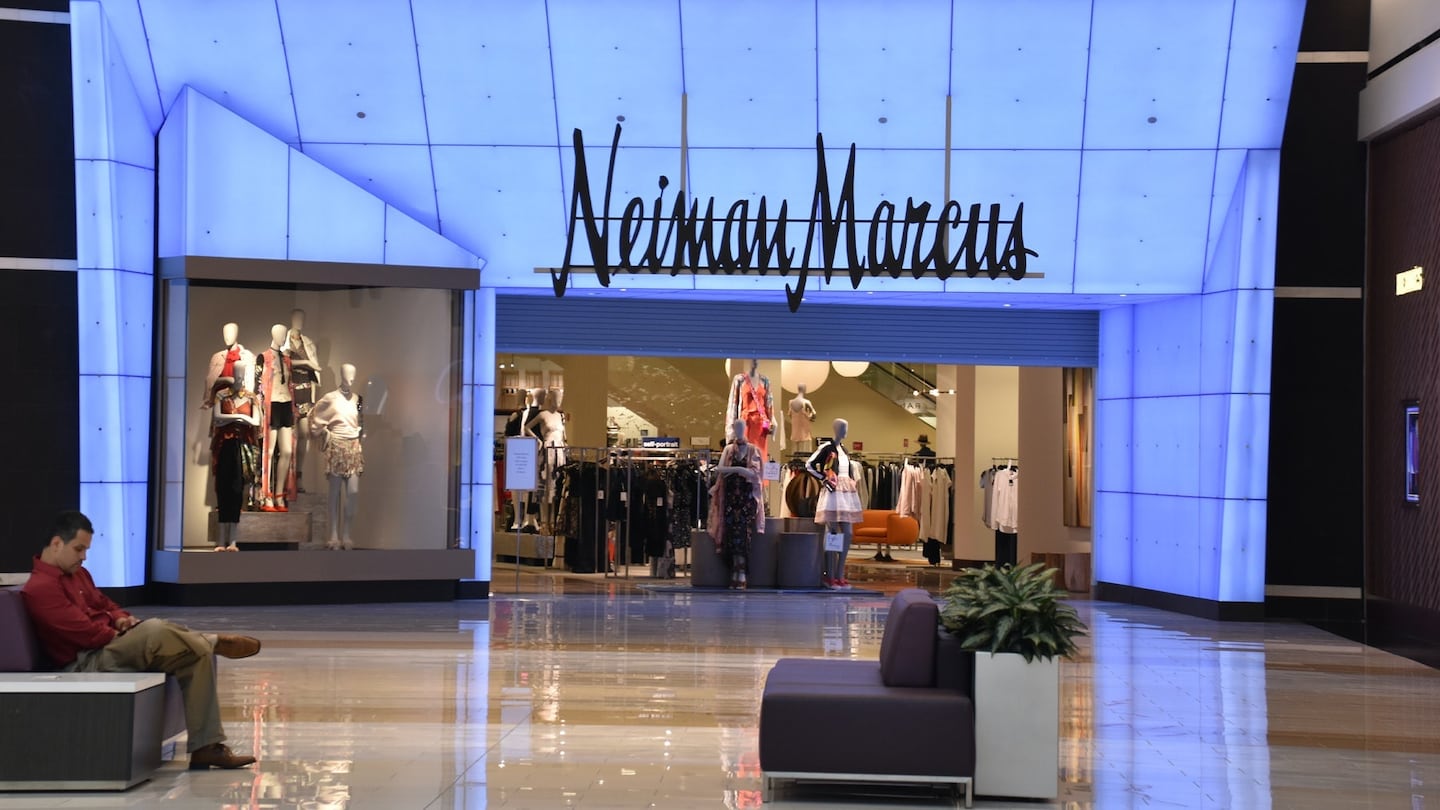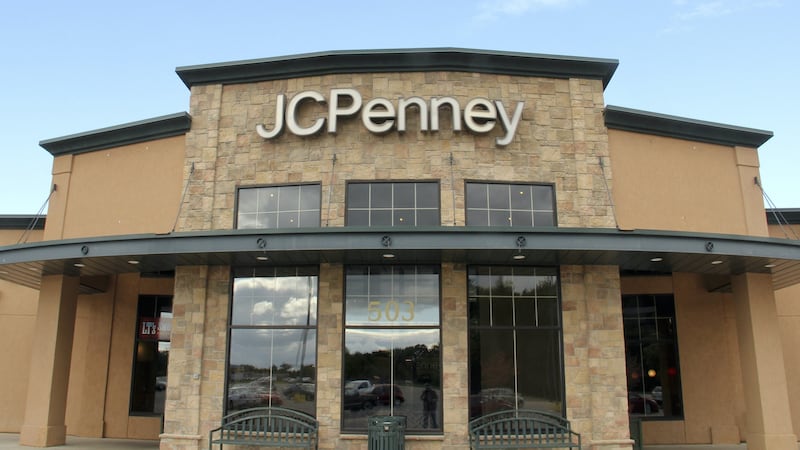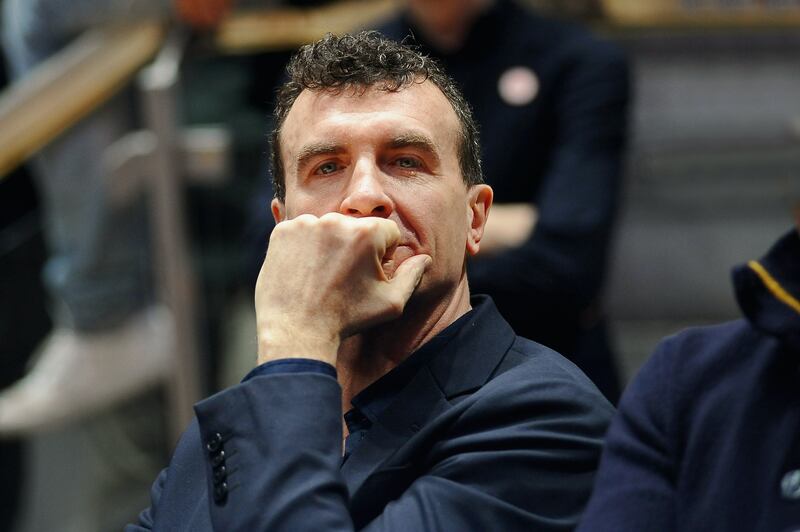
The Business of Fashion
Agenda-setting intelligence, analysis and advice for the global fashion community.

Agenda-setting intelligence, analysis and advice for the global fashion community.

Hello BoF Professionals, your exclusive 'This Week in Fashion' briefing is ready, with members-only analysis on the key topic of the week and a digest of the week's top news.
It's been a turbulent week for American retailers. On Monday, J.Crew filed for Chapter 11 bankruptcy protection, becoming the first major casualty of the coronavirus pandemic. On Tuesday, news reports suggested that Lord & Taylor, which let its entire executive team go last month, is readying itself to liquidate inventory in all 38 of its stores as soon as restrictions to slow the spread of the coronavirus are lifted.
By Wednesday, L Brands' plans to sell Victoria's Secret to private equity firm Sycamore Partners had fallen apart, threatening to derail the troubled lingerie giant's turnaround plan, and even Nordstrom, which was comfortably profitable before the crisis, announced plans to permanently shutter 16 full-line department stores. But perhaps the biggest thud of the week came on Thursday, when debt-laden luxury titan Neiman Marcus filed for bankruptcy.
The coronavirus has been crippling, forcing store closures and crushing consumer demand. But the retailers struggling most came to the crisis with serious pre-existing conditions rooted in radical changes to the fashion and retail landscape and their own failures to respond.
ADVERTISEMENT
Department stores like Nordstrom, Lord & Taylor and Neiman Marcus have all suffered from tectonic shifts in consumer behaviour, rising competition from online players and discounters, and heavy debt burdens, while failing to adequately invest in e-commerce, pivot their business models away from wholesale and deliver the curation, experience and entertainment factors that have differentiated outlier success stories like Selfridges.
Meanwhile, J.Crew has long struggled to turnaround sluggish sales and recapture its fashion credibility under its own crushing debt load as consumers fled to cheaper, cooler brands. Victoria's Secret long ago fell out of sync with cultural shifts and has suffered years of sinking sales.
But the stumbles of some of America’s best-known chains raise grave questions for an even bigger institution in American social and economic life: the mall. J.Crew and Victoria’s Secret have long been mainstays at shopping centres across the country, while Neiman Marcus, Lord & Taylor and Nordstrom are the types of anchor tenants that malls simply can’t survive without.
While Lord & Taylor does not expect to emerge from bankruptcy and is set to shutter its entire network of stores, Nordstrom is planning more modest closures. Neiman Marcus plans to exit bankruptcy in the autumn and does not intend to conduct liquidation sales or mass store closures. But the shuttering of a single department store can be fatal for the mall it anchors.
Mall operators don’t actually generate much revenue from anchor tenants, which occupy large spaces but typically pay minimal rent or own their stores. But these anchors attract footfall and their closure can have a significant knock-on effect for in-line tenants, whose higher rents and shorter leases makes them more likely to exit shopping centres when sales dip.
This sets up the prospect of a domino effect that ripples through American malls, hundreds of which have already closed over the last decade as consumers shifted spending to e-commerce sites and discounters, and shopping centres became increasingly irrelevant to a young generation for whom social media is the most popular place to hang out.
Malls in lower-and middle-income areas have suffered most, as the largest spoils of economic growth were captured by a small slice of the population, and some have been betting on the future of glitzy developments in the country’s wealthiest cities. But malls like New York’s Hudson Yards, anchored by a 188,000-square-foot Neiman Marcus, face uncertainty, too.
Neiman Marcus has said it has no plans for mass closures and would evaluate its locations on a case-by-case basis. But if the department store were to exit Hudson Yards in future, the move could trigger an exodus at the mall, where smaller tenants are said to have negotiated leases with rent discounts and exit clauses that kick in if the anchor tenant departs and no equivalent is secured.
ADVERTISEMENT
What might take the place of ailing department stores and get shoppers to visit shopping centres? Hotels and supermarkets anchor successful malls elsewhere in the world, and many American operators are turning to a mix of hospitality, entertainment, wellness and arty Instagram bait to attract footfall. Others are betting on mixed-use concepts, where shopping centres are attached to residences and offices, as is already the case at Hudson Yards.
But amidst the rising human and economic toll of the coronavirus, getting consumers back into shopping centres may be a tall order. On Friday, the US Department of Labor said 20.5 million American jobs were lost in April, putting the unemployment rate at 14.7 percent, devastation not seen since the Great Depression of the 1930s. Then, there’s the threat of infection, even death.
Amongst Americans who do still have money to spend (and perhaps little else in the way of public space in which to socialise), how many will actually feel comfortable making a trip to the mall?
Consumer spending will eventually rebound, and department store closures may not be as severe as some foresee. But ultimately the future of the mall may come down to the most unpredictable variables of all: the looming threat of a second wave of infections, which could lead to further lockdowns and further retail bankruptcies, and the timing of a Covid-19 vaccine. If malls remain dead zones for an extended period of time, even as other parts of the economy reopen, their fates may be sealed and the American shopping landscape will be changed forever.
— Vikram Alexei Kansara
THE NEWS IN BRIEF
FASHION, BUSINESS AND THE ECONOMY

Photos from J. Crew catalogues | Source: Collage by BoF
ADVERTISEMENT
J. Crew files for Chapter 11, becoming US fashion's first major pandemic casualty. The preppy American brand is unlikely to be the last retailer to seek bankruptcy protection in the wake of the Covid-19 crisis. J. Crew has been struggling with sluggish sales and a crushing debt burden. A Chapter 11 bankruptcy will allow J. Crew to continue to operate while cutting its debt level and closing weak stores to minimise costs. J.Crew said in a statement that this restructuring will allow the business to move toward "long-term profitable growth."
Neiman Marcus Group filed for bankruptcy. The Dallas-based chain, which also owns Bergdorf Goodman in New York and the e-commerce site MyTheresa, is aiming to get rid of the bulk of its $5 billion in debt, with its creditors becoming the majority owners. It won't be conducting liquidation sales or mass closures among its 40-plus stores, and MyTheresa is not part of the proceedings, the company said. The news came as reports surfaced that Lord & Taylor plans to liquidate all its stores once they reopen as part of its own bankruptcy process.
H&M sales plunge. The fast-fashion giant announced Thursday that sales had dropped 57 percent between March 1 and May 6, compared to the same period last year. Online sales grew 32 percent during the same period, but the retailer will need to do more to offset the decline. Italy was the worst-hit region with sales dropping 80 percent in the period, while sales in South Korea only declined by 11 percent. The company has slowly started to reopen stores, but around 60 percent of the stores remain closed.
Victoria's Secret owner and Sycamore cancel deal. The agreement brings an abrupt end to one of the highest-profile deals this year in the retail world and charts an uncertain path for a storied American brand. Sycamore Partners and L Brands also agreed to settle all pending litigation. Victoria's Secret had been a pioneer in mass-market lingerie, but the business has declined in recent years amid controversy and changing consumer tastes. The lingerie company said it would provide further details on its plans for Victoria's Secret during an earnings call on May 21.
America's retailers return to work in the hope of attracting coronavirus-weary shoppers. States including Texas, Georgia and South Carolina are allowing stores to resume business. These first days back will be closely watched as the industry plots its comeback after a crisis that cost an estimated $150 billion in lost sales last month. The companies that do reopen face wide-ranging challenges in adopting new safety procedures and bringing back some of the roughly 1.3 million US store employees that were furloughed.
Hong Kong retail sales down 42 percent amid the Covid-19 crisis. Sales dropped to HK$23 billion in March — the 14th consecutive month of decline. The coronavirus-induced spending drought has hit an economy already in recession after often-violent anti-government protests in the second half of last year. The Hong Kong Retail Management Association said last month that about 25 percent of retail stores in the Asian financial hub were expected to close by end of the year despite fresh government relief measures.
Hugo Boss expects 50 percent sales decline in the second quarter. The German fashion label saw sales decline 17 percent in the first quarter of the year, and despite growth in sales online and from China, Chief Executive Mark Langer said he expects business to get worse before it gets better. Analysts have predicted that luxury losses will peak in the second quarter.
Bain predicts Chinese shoppers will represent 50 percent of luxury audience after pandemic. The consulting firm's spring 2020 report predicted online sales and Chinese consumers will represent even more of the luxury market after the pandemic, and that the sector wont recover to 2019 levels until 2022 or 2023 before growing to between €320-330 billion in 2025. While Bain expects that more of Chinese shopping will shift permanently to Asia, they predict travel retail to eventually return to pre-pandemic levels once travel restrictions and fears ease.
Europe starts to reopen. Spain and France are preparing to slowly transition out of lockdown: Spain has slowly started to reopen some businesses over the past week, with a state of emergency order to end on May 9, while France will begin easing out of lockdown on May 11, allowing some stores to reopen and employees to return to offices. (Zara-owner Inditex is rumoured to have opened some stores in Spain this week.) However, it may take a while for consumers to return to them as unemployment remains high and consumers scale back on discretionary spending.
THE BUSINESS OF BEAUTY

J.C. Penney store | Source: Shutterstock
J.C. Penney and Sephora settle their legal dispute. J.C. Penney filed a lawsuit last month accusing the beauty giant of attempting to exit an agreement concerning 650 in-store beauty boutiques. The terms of the partnership weren't disclosed, but both companies said the in-store boutiques will continue. The relationship is due to end in May 2022, and the next two years will likely be rocky for J.C. Penney, which is trying to refinance loans and missed a debt payment last month.
Revlon makes plans for China re-entry. The beauty giant is re-entering the China market exclusively online through Tmall Global, with K-Pop star Jessica Jung as its global brand ambassador. The brand was previously sold through Tmall Global after leaving the China market in 2014, however this time it will also be adding its full collection to Tmall's domestic platform.
Next looks to take a bigger share of the British beauty market. The high street retailer announced that it is embarking on its first physical beauty launch, setting up standalone beauty halls in five former Debenhams department stores. The chain stocks roughly 200 beauty brands, and said that it will likely hire staff from Debenhams.
PEOPLE

Livio Proli | Source: Getty Images
Missoni names first CEO. The family-led Italian luxury label, which sold a minority stake to private equity firm FSI Mid-Market Growth Equity Fund in 2018, appointed former managing director of Giorgio Armani Group Livio Proli as chief executive. This is the first time Missoni has had a CEO, though General Director Emilio Carbonera Giani recently departed the company.
Condé Nast hires its first global communications lead from Vice Media. Danielle Carrig is joining the publisher of Vanity Fair and Vogue as its first ever global chief communications officer, effective May 26. Carrig joins Condé Nast from Vice Media Group, where she also held the role of global chief communications officer.
Victoria's Secret appoints interim CEO. Following the cancellation of the Sycamore Partners' acquisition of Victoria's Secret, parent company L Brands has named Chief Financial Officer Stuart Burgdoerfer interim chief executive of the troubled lingerie brand. Former Chief Executive and Chairman Leslie Wexner will continue with his plan to step down, and L Brands will announce further plans at its next earnings presentation.
MEDIA AND TECHNOLOGY
Fashion weeks go digital. London, Paris and Milan are preparing for digital fashion weeks as the pandemic continues. The Fédération de la Haute Couture et de la Mode, Italy trade group Camera Nazionale della Moda and British Fashion Council all announced plans to hold fashion week over digital platforms, with brands presenting collections through films or livestream videos. Shanghai's fashion week in February might be a blueprint for how each digital fashion week will work, with digital collections, keynote events and "See Now, Buy Now" activations scheduled throughout the week.
Zalando sees double digit growth. The e-commerce giant is projecting that its gross merchandise volumes — a measure of sales — will grow between 10 and 20 percent as consumers and brands look to online shopping platforms during the pandemic. Unlike many other companies, the retailer expects to remain profitable this year with projected earnings before interest and tax to be over €100. The company is not completely immune to the pandemic, however. In order to manage the crisis, the company said it has cut costs by €350 million this year.
Amazon wins business from reluctant brands after coronavirus closes stores. The e-commerce giant has long enjoyed outsize power over small businesses. Now, that leverage includes bigger brands that relied on physical retail for the bulk of their sales. Amazon's online sales soared 24 percent in the first quarter, the fastest pace in four years, and Founder Jeff Bezos is spending heavily to keep his company running through the pandemic.
BoF Professional is your competitive advantage in a fast-changing fashion industry. Missed some BoF Professional exclusive features? Click here to browse the archive.
Nordstrom, Tod’s and L’Occitane are all pushing for privatisation. Ultimately, their fate will not be determined by whether they are under the scrutiny of public investors.
The company is in talks with potential investors after filing for insolvency in Europe and closing its US stores. Insiders say efforts to restore the brand to its 1980s heyday clashed with its owners’ desire to quickly juice sales in order to attract a buyer.
The humble trainer, once the reserve of football fans, Britpop kids and the odd skateboarder, has become as ubiquitous as battered Converse All Stars in the 00s indie sleaze years.
Manhattanites had little love for the $25 billion megaproject when it opened five years ago (the pandemic lockdowns didn't help, either). But a constantly shifting mix of stores, restaurants and experiences is now drawing large numbers of both locals and tourists.